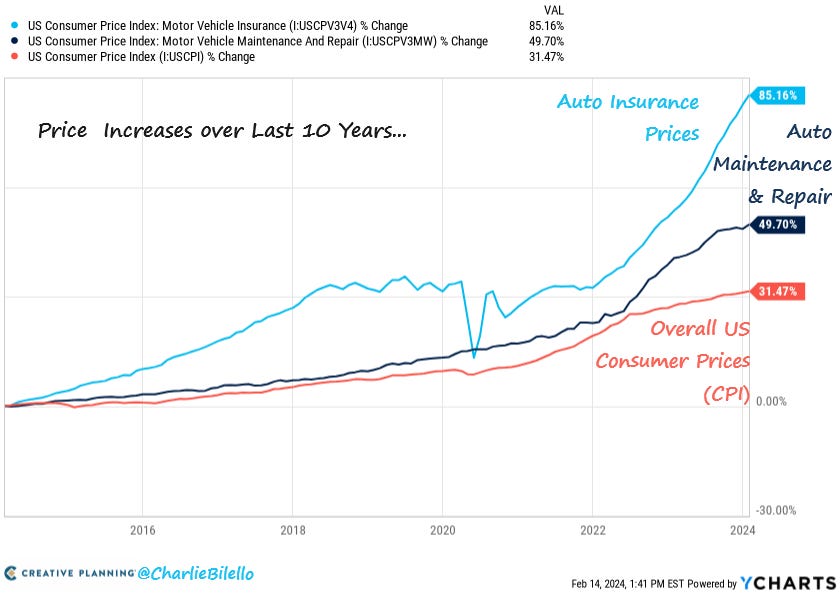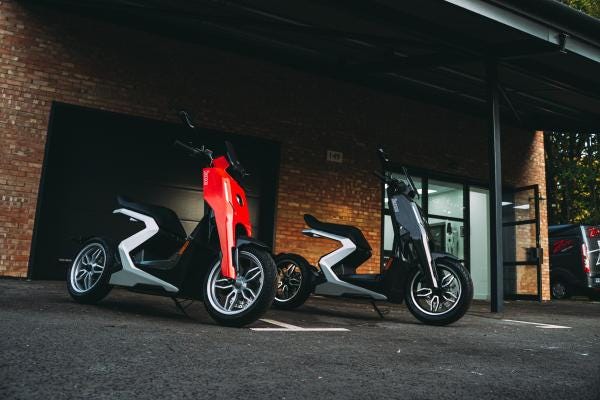Hold on Ola -- Ather Is Planning a Moped IPO Too
Plus how the price of car ownership is rapidly outpacing inflation, successful fundraising for Kenya's ROAM and Britain's Zapp EV, and more.
Welcome to the Micromobility Newsletter, your weekly digest of important events and industry news in the world of personal transportation.
What You Need to Know Today
India’s Ather Energy is in talks with investment banks to plan an IPO for later this year. AE is currently the country’s largest manufacturer of electric two-wheelers, and its IPO plans are likely motivated by competitor Ola Electric who announced an IPO late last year.
The New Jersey Senate is considering a bill requiring insurance for e-bike and scooter riders. The bill has been widely criticized even by supporters who passed it in the Senate’s Transportation Committee, with lawmakers promising to amend the bill before bringing it to a full vote.
Full-sized electric cars face growing negativity in Europe, considered “too expensive to consider owning” by a majority of residents in 25 capital cities. Interestingly, the survey also shows strong resistance to shared scooters and e-bikes, particularly in cities that adopted shared systems without bothering to build micromobility-friendly infrastructure first.
It’s not just EVs that are too damn expensive: the cost of car ownership is skyrocketing in the US. Insurance prices have increased by 85% in the last ten years, while maintenance and repair costs have gone up by 50%. By comparison, inflation (measured by the Consumer Price Index) increased 31% in the same span.
Kenya-based ROAM successfully raised $24M in a Series A funding round. The company has grown rapidly since its creation five years ago and operates the largest electric motorcycle plant in East Africa, while also manufacturing electric busses and charging infrastructure.
British startup Zapp EV is set to start production of its electric mopeds after securing an investment of £8M. Zapp’s flagship i300 moped features a patented Z-shaped frame and will be sold across Europe at a starting price of £6,990 (€8,165).
Companies looking to lure employees back to the office with transportation perks are choosing to offer micromobility vehicles, foregoing the traditional “company car” approach. E-bikes in particular are popular as they can often beat traffic times in large cities while being an order of magnitude more efficient (and affordable) than a full-size car.
This “company bike” opportunity is being seized by Vaupaus, a Helsinki-based mobility benefits provider. They specialize in providing employee bikes on behalf of other companies, and successfully raised €15M from Norris Bank to expand operations in Finland and Sweden.
New York City’s first E-Bike Industry Day brought officials, delivery workers, and manufacturers together to improve access to safely manufactured e-bikes. Attendees were able to test ride and learn about products from a range of reputable manufacturers, and the city’s Department of Transportation has allocated $2M for an e-bike trade-in program.
Shared mobility startups continue to struggle as Sweden-based Voi Technology announced plans to lay off 12% of its workforce. The vast majority of the 120 affected jobs are office and consultant positions, with mechanics and field workers largely unaffected.
The city of Dublin is taking a big step to reduce traffic congestion by banning through traffic in the city center. The plan will also create new pedestrian streets and plazas, with a goal of reducing traffic by at least 60%.
How often would you ride your bike if you got paid to do it? Residents of Denver can get paid up to $200 per month for commuting by bike, part of a pilot program facilitated by Denver Streets Partnership. The program also offers free coaching on topics like route finding and safe riding practices.







Thanks for adding photo descriptions!
AE isn’t the largest manufacturer. Ola is. AE is not even in the top 3